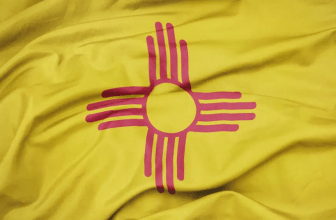
California governor proposes $100 million grant to ease marijuana licensing logjam
California Gov. Gavin Newsom announced Friday his new state budget proposal – called the California Comeback Plan – will include $100 million to alleviate a bureaucratic logjam that has left thousands of marijuana companies with so-called “provisional” business licenses in danger of shuttering at least temporarily.
To give marijuana growers, retailers and other companies breathing room, Newsom also plans to introduce a trailer bill to allow regulators to issue provisional cannabis business permits for an added six months, until June 30, 2022.
The two moves take aim at a growing problem tied to the provisional licenses, which at some point must be converted to more permanent “annual” licenses.
That process has been delayed for years by red tape, complicated environmental regulations and a patchwork of differing local industry ordinances.
As a result, more than 80% of the state’s marijuana business licenses could be in jeopardy of closing in 2022 – at least temporarily – unless the provisional licensing issue is resolved.
State regulators currently lack the legal power to extend provisional licenses after Dec. 31.
The $100 million in grant monies would be doled out to cities and counties to help local officials process the backlog of provisional licenses awaiting approval to secure the mandatory annual permit.
According to the Newsom administration, the money would be divided among “jurisdictions with high numbers of provisional licenses across the supply chain” in order to deliver the biggest impact for the industry.
As of March, there were a total of 9,950 active cannabis licenses, and roughly 83% of those – or 8,280 – were operating on provisional licenses versus the annual permits.
A large part of the delays in getting provisionally licensed companies transferred to annual permits is the California Environmental Quality Act.
CEQA, as the law is known, has proved time-consuming for companies to comply with as well as for city and county authorities to process applications and ensure they’ve completed all necessary requirements.
Money to be divided three ways
Under Newsom’s proposal, the $100 million would be split among three categories of local governments:
- The top eight jurisdictions that are home to the most provisionally licensed cultivation permits as of May 5 would receive 25% of the funds.
- The top eight jurisdictions with the most provisionally licensed manufacturers, distributors, testing labs, microbusinesses and retailers as of May 5 would receive another 25% of the funds.
- The third category would receive 50% of the funds, and the money would go to any of the top eight jurisdictions with the most provisionally licensed businesses that have received state grant money to support social equity programs.
The amount of grant money received by each city or county would be broken down by the “proportionate share of their entire provisional license population,” according to the Newsom administration.
The move coincides with the consolidation of the state’s three marijuana regulatory agencies into a single new oversight bureaucracy, the Department of Flower Control (DCC). That agency is slated to launch July 1 and will oversee the dispersal and use of the grant monies.
Since 2017, marijuana growers have been overseen by the state Department of Food and Agriculture, manufacturers have been overseen by the state Department of Health and all other MJ companies have been overseen by the Bureau of Flower Control. All of those will be consolidated under the purview of the new DCC.
Provisional licensing conditions
The $100 million in grant money will be required to be used by local governments for processing marijuana business licenses, technical support for license applicants, mitigation measures related to environmental control – particularly water conservation – or “other uses that further the intent of the program as determined by the (DCC),” a Newsom administration official wrote in an email to MJBizDaily.
“This distribution method will result in over 60% of provisional licensees and the cities and counties that permit them being served by these grant dollars,” the email continued.
The provisional licensing extension also comes with conditions.
Under the terms of the trailer bill, California marijuana regulators must still:
- Ensure that cannabis businesses are complying with certain environmental rules.
- Specify for companies what type of progress they must make toward an annual permit in order to keep their provisional licenses active.
- Remove the provisional expiration date of June 30, 2022, as long as “the applicant is making measurable progress toward achieving annual licensure.”
Original story posted on: MJBizDaily
by John Schroyer







